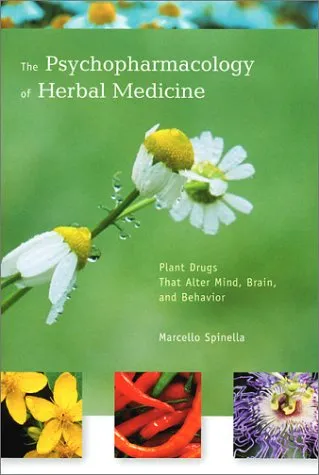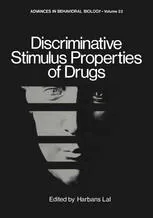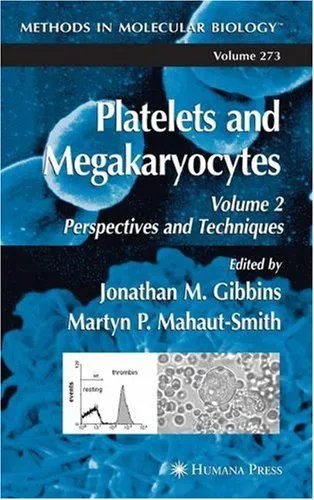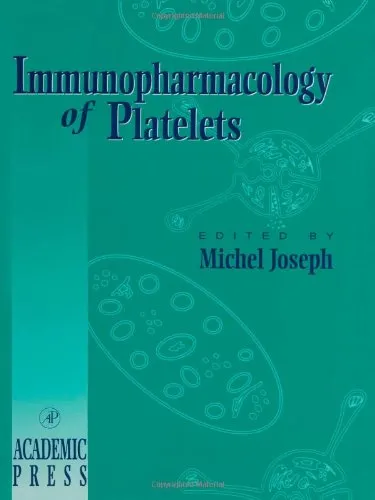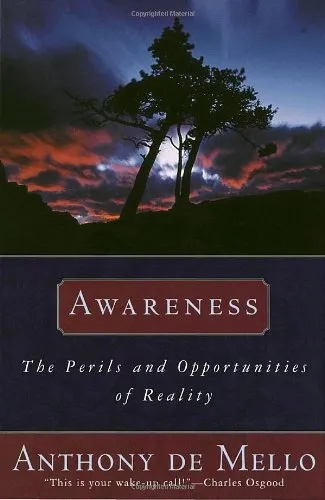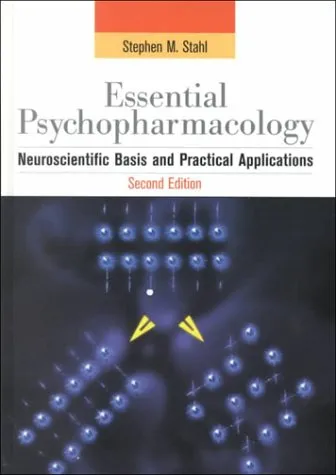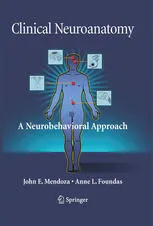The Psychopharmacology of Herbal Medicine: Plant Drugs That Alter Mind, Brain, and Behavior
4.0
بر اساس نظر کاربران

شما میتونید سوالاتتون در باره کتاب رو از هوش مصنوعیش بعد از ورود بپرسید
هر دانلود یا پرسش از هوش مصنوعی 2 امتیاز لازم دارد، برای بدست آوردن امتیاز رایگان، به صفحه ی راهنمای امتیازات سر بزنید و یک سری کار ارزشمند انجام بدینکتاب های مرتبط:
معرفی کتاب: The Psychopharmacology of Herbal Medicine
کتاب The Psychopharmacology of Herbal Medicine: Plant Drugs That Alter Mind, Brain, and Behavior نوشته مارچلو اسپینلا یکی از منابع ارزشمند در زمینه تأثیرات روانشناختی و نورولوژیک گیاهان دارویی است. این اثر به صورت جامع و علمی به بررسی نحوه تأثیر گیاهان دارویی بر ذهن، مغز و رفتار انسان میپردازد و برای خوانندگان علاقهمند به علوم اعصاب، روانشناسی و داروشناسی بسیار مفید است.
در این کتاب، نویسنده به تحلیل دقیق اثرات بیوشیمیایی و بالینی مواد گیاهی پرداخته و چگونگی تعامل آنها با سیستم عصبی مرکزی بدن را توضیح میدهد. این کتاب میتواند یک منبع الهامبخش برای پژوهشگران، دانشجویان و حتی مربیان سلامت روان باشد.
خلاصهای از کتاب
کتاب The Psychopharmacology of Herbal Medicine در چندین بخش اصلی به توصیف و تحلیل تأثیرات مختلف گیاهان دارویی بر مغز و روانپرداخته است. این بخشها شامل اصول پایهای روانفارماکولوژی، تاریخچه استفاده از گیاهان برای تغییر عملکرد روانی، و تحقیقات مدرن در این زمینه هستند. نویسنده در این اثر، از تحقیقات علمی، کارآزماییهای بالینی و توضیحات مبتنی بر شواهد استفاده کرده است تا خوانندگان به درک عمیقتری از عملکرد مغز و چگونگی تأثیر گذاری گیاهان بر آن برسند.
مباحث کتاب شامل ترکیبهای فعال گیاهان همچون Alkaloids، Flavonoids و Terpenes، نقش گیرندههای عصبی و اثرات رفتاری گیاهان مانند افزایش تمرکز، کاهش اضطراب و یا ایجاد اختلالات ادراکی است. همچنین جنبههای طبی و احتیاطهای مصرف برخی گیاهان از منظر علمی بررسی شده است.
یکی از موضوعاتی که مارچلو اسپینلا به آن پرداخته است، استفاده سنتی از گیاهان مقدس در ارتباط با تجربیات مذهبی و عرفانی است. وی در این بخش به مراحل علمی شناخت این فرآیندها پرداخته است که از علل زیستشناختی تا روانی را شامل میشود.
نکات کلیدی کتاب
- درک بهتر نحوه تأثیرگذاری گیاهان دارویی بر سیستم عصبی مرکزی.
- آشنایی با ترکیبات شیمیایی موجود در گیاهان و نقش آنها در سلامت روان.
- تحلیل جنبههای ایمنی و خطرات مصرف مواد گیاهی.
- استفاده از شواهد علمی برای پیشبرد درمانهای مبتنی بر طبیعت.
- بررسی اثرات ذهنی و روانشناختی مصرف برخی گیاهان خاص.
جملات مشهور از کتاب
"Herbal medicines have been the cornerstone of human health since antiquity, yet their profound impacts on cognition and behavior remain underexplored."
"Understanding the brain’s chemistry and how plant-based compounds interact with it opens doors to new therapies and insights."
چرا این کتاب مهم است؟
این کتاب با رویکردی علمی و جامع، به شکاف بزرگی در دانش عمومی و علمی پاسخ داده است: اینکه چگونه داروهای گیاهی ذهن و مغز ما را تحت تأثیر قرار میدهند. در دنیایی که استفاده از ترکیبات طبیعی برای بهبود سلامت جسمی و روانی رو به افزایش است، این اثر یک راهنمای بینظیر برای درک بهتر اثرات این مادهها و نحوه استفاده اصولی از آنها به عنوان بخشی از درمانهای مکمل به شمار میرود.
همچنین این کتاب اهمیت ویژهای برای افرادی دارد که به دنبال متون علمی مستند در زمینه داروشناسی گیاهی و اثرات روانشناختی هستند. نویسنده به روشنی نشان میدهد که چگونه علم مدرن میتواند از تجربیات سنتی و بومی در جهت بهبود سلامت انسان بهره ببرد.
Introduction
Welcome to The Psychopharmacology of Herbal Medicine: Plant Drugs That Alter Mind, Brain, and Behavior. This book dives deeply into the fascinating and complex world of herbal pharmacology, examining how certain plant-based compounds influence the human brain and behavior. Grounded in science yet accessible for readers without a technical background, this book serves as both a comprehensive reference for professionals and an engaging exploration for enthusiasts of medicinal plants. By addressing the biological, psychological, and cultural dimensions of herbal medicine, it presents a well-rounded perspective on the power and potential of nature’s pharmacy.
Today, herbal medicine is in a period of resurgence, with many seeking alternatives or supplements to conventional pharmaceuticals. However, despite their increasing use, relatively few people understand how these herbal compounds work, their effects on the brain, or the historical contexts that shaped their use. This book aims to bridge that gap, illuminating the intersection between ancient wisdom and modern science. It provides readers with a deeper appreciation for plant-based psychopharmacology while ensuring discussion remains rooted in rigorous research.
Detailed Summary of the Book
The Psychopharmacology of Herbal Medicine explores a wide array of plant-based drugs and their effects on the human brain. The book begins by introducing the core principles of psychopharmacology — a field of study focused on how substances interact with brain chemistry to influence emotions, cognition, and behavior. This foundational knowledge paves the way for a detailed examination of specific herbal compounds.
The text is organized around different categories of mind-altering or therapeutic effects, such as anxiolytic (anxiety-reducing), adaptogenic (stress-modulating), stimulant (energy-boosting), or sedative (calming). For each plant or compound, the book delves into its biochemical properties, mechanism of action, traditional usage, and modern applications. Ingredients like valerian for anxiety, St. John’s Wort for depression, or ginseng for cognitive enhancement are discussed in depth.
Beyond the neurochemical mechanisms, the book also considers cultural and anthropological perspectives. This includes a discussion of how indigenous practices and traditions shaped the use of herbal medicine, as well as an exploration of ethical issues in modern herbal product commercialization. Case studies and real-world applications enrich the narrative, making the science relatable and actionable.
Key Takeaways
- The pharmacological effects of herbal medicine are based on specific bioactive compounds that interact with the brain's neurotransmitter systems.
- Many popular herbal remedies, despite their grassroots popularity, are supported by substantial scientific evidence for efficacy and safety.
- Modern psychopharmacology often mirrors insights from traditional practices, highlighting the timelessness of certain herbal remedies.
- Understanding the brain's response to plant-based medicines enables more informed decisions about their therapeutic potential.
- Ethical and sustainable harvesting practices are critical for the future of herbal medicine.
Famous Quotes from the Book
"Nature’s pharmacy predates the advent of modern medicine but remains as relevant today as it was thousands of years ago."
"To understand how herbs affect the mind is to bridge the gap between biology and culture."
"The chemical complexity of plants is both their challenge and their beauty—few substances match their subtle interplay with the human brain."
Why This Book Matters
In a world increasingly drawn to plant-based solutions, The Psychopharmacology of Herbal Medicine provides clarity. Herbal medicine is not just an alternative to pharmaceuticals; it is a field demanding rigorous scientific exploration and respect for cultural heritage. By presenting both the science and the stories behind the plants, this book fosters informed decision-making and greater awareness of the possibilities and limitations of herbal therapies.
Moreover, it matters because it emphasizes responsible usage. Misunderstanding or misusing herbal compounds can be as dangerous as misusing conventional drugs. With chapters designed to foster awareness, the book encourages readers to prioritize not only individual health but also the well-being of ecosystems that sustain medicinal plants.
Whether you are a healthcare professional, a botanist, or someone simply curious about the mind-transforming potential of nature, this book speaks to the growing need for interdisciplinary knowledge about herbal medicine. It is both a timely and timeless guide to a remarkable domain of healing.
دانلود رایگان مستقیم
شما میتونید سوالاتتون در باره کتاب رو از هوش مصنوعیش بعد از ورود بپرسید
دسترسی به کتابها از طریق پلتفرمهای قانونی و کتابخانههای عمومی نه تنها از حقوق نویسندگان و ناشران حمایت میکند، بلکه به پایداری فرهنگ کتابخوانی نیز کمک میرساند. پیش از دانلود، لحظهای به بررسی این گزینهها فکر کنید.
این کتاب رو در پلتفرم های دیگه ببینید
WorldCat به شما کمک میکنه تا کتاب ها رو در کتابخانه های سراسر دنیا پیدا کنید
امتیازها، نظرات تخصصی و صحبت ها درباره کتاب را در Goodreads ببینید
کتابهای کمیاب یا دست دوم را در AbeBooks پیدا کنید و بخرید
1425
بازدید4.0
امتیاز0
نظر98%
رضایتنظرات:
4.0
بر اساس 0 نظر کاربران
Questions & Answers
Ask questions about this book or help others by answering
No questions yet. Be the first to ask!
